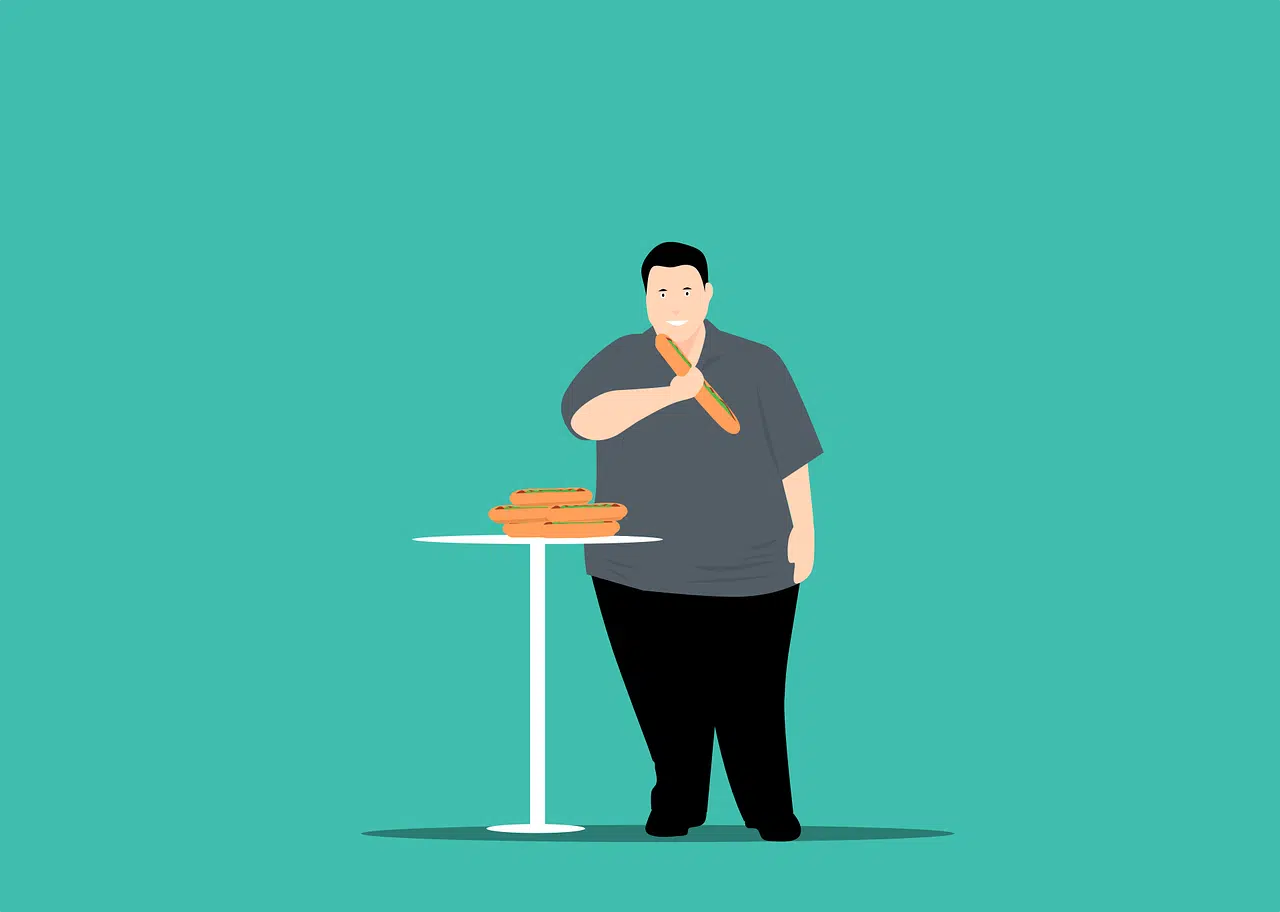
Obesity is a disease that involves excessive accumulation of fat in the body.
Obesity is the quality of being obese . This term from the Latin obesitas refers to excess body weight .
Obesity is considered a disease since excess weight causes major health problems. An obese person runs the risk of suffering from type 2 diabetes , high blood pressure and heart disorders, among other physical complications.
This disease, which is characterized by the accumulation of fat in the body, can have multiple causes, whether genetic, environmental or psychological. This means that obesity is not only associated with a diet with food intake in large quantities.
Obesity according to the WHO
For the World Health Organization ( WHO ) , obesity occurs when the adult's body mass index (BMI) exceeds 30 kg/m2 . It can affect both men and women of any race, nationality or social class.
It is important to keep in mind that in ancient times it was believed that being overweight was synonymous with good nutrition and, therefore, healthy living conditions. Today doctors know that it is a factor that affects the development of numerous diseases, both physical and mental.
In many countries, obesity is a public health problem that has already become an epidemic due to the large number of cases reported by health institutions. One of the reasons lies in the current pace of life, which leads people to adopt a sedentary lifestyle and eat unhealthy foods.
Those who suffer from obesity, on the other hand, are often discriminated against and receive ridicule and derogatory nicknames. The disease, in this way, also constitutes a social stigma .

Junk food can contribute to the development of obesity.
The impact on social life
In principle, it is important to make a distinction between those who suffer from obesity and manage to overcome it, and those who must suffer from it until the end of their lives . When this disease occurs during childhood, the protagonists of this nightmare care little about the repercussions on their circulatory system and joints, since they have enough of the ridicule and contempt they receive from their peers.
Obese boys are branded as effeminate, while girls are branded as masculine. Both genders are subjected to countless malicious jokes and nicknames, which society itself periodically renews for the comfortable use of the heartless aggressors. Does anyone really believe that an obese person enjoys being called "fat" ? Where is the consideration for others when making a mocking comment towards someone who suffers from an illness?
It is known that generalizations should not be taken as a reference when carrying out a study of any kind, but it is not without reason that there is an alleged relationship between lack of self -confidence and obesity or any other disorder that affects physical appearance . of a person.
Returning to the distinction made in the first paragraph, obesity seems to be a stigma that haunts those who suffer from it for life , including those who manage to overcome it. Within this group, sports or gymnastic activities are very common, as well as responsible eating, seeking by all means not to return to the fatal stage of being overweight .
It probably takes just a little attention to detect who has been overweight as a child and who has not; the constant worry about physical appearance, the questions like "does this make me look fat?" and excessive criticism of the appearance of others are clear signs of a past related to obesity, vestiges of a condition that can only be known by those who have experienced it firsthand.

The excess body fat that characterizes obesity increases the risk of heart disease.
Obesity and emotional health
It is evident that obesity not only affects the body, but also emotional health. Due to criticism of physical condition and weight stigmatization, obese people often suffer discrimination and bullying .
Given this reality, the overweight individual may suffer from self-esteem and anxiety problems or even fall into depression . Although a change in eating habits is necessary to achieve a healthy weight, without expert dietary advice you can suffer from anorexia, bulimia and other eating disorders linked to a distortion of body image.
Support groups , in this framework, are important to overcome the problem. Beyond institutionalized or formal assistance, family support and the support of friends is also key.
Prevention and treatment
The prevention of obesity and its treatment contemplate different actions. On the one hand, it is necessary to minimize the consumption of processed foods and sugary drinks and opt, instead, for low-fat foods, vegetables and fruits.
It should be considered that the fight against obesity is not always associated with reducing food portions. Weight loss goals must be set by a nutrition expert: it is the nutritionist who, taking into account the specific reality of the patient, has to design the corresponding eating plan and be in charge of monitoring progress.
It is crucial to eat mindfully , paying attention to the foods you choose and enjoying them. Whenever possible, it is better to avoid fast food and opt for homemade and healthy preparations.
Of course, diet is not the only aspect to consider to prevent and treat childhood obesity and obesity in adults. Physical activity helps increase the calories burned each day, whether it is walking, running, hiking, cycling, lifting weights in a gym, practicing Pilates, swimming or doing any other type of exercise. Yoga and meditation can also help.
